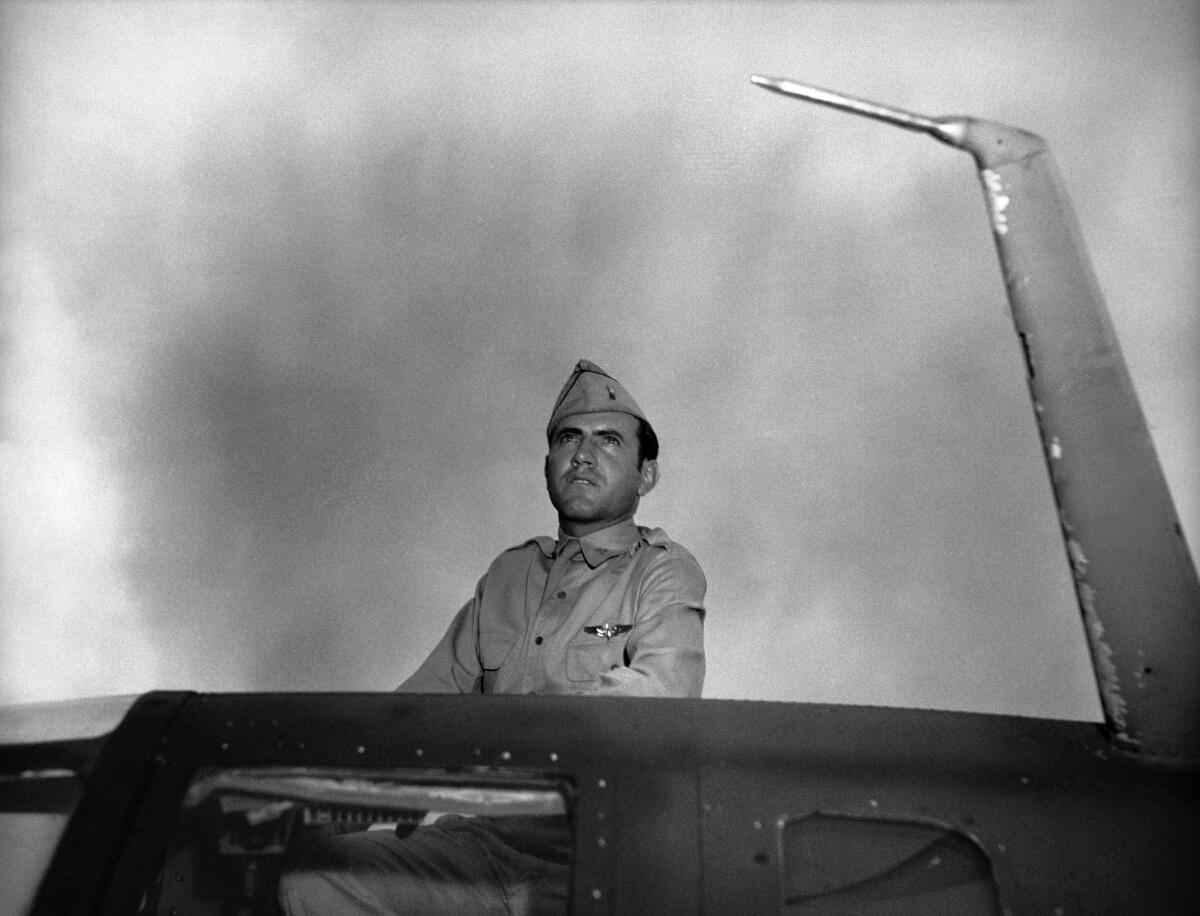Louis Zamperini, ‘Unbroken’ hero: A remarkable life, well told

- Share via
Louis Zamperini lived an impossible, remarkable life. And Laura Hillenbrand helped bring it to a wide audience with “Unbroken,” the biography that was a Los Angeles Times Book Prize winner and bestseller when its subject was in his 90s. A biopic made from the book, directed by Angelina Jolie, is due in December.
Zamperini died Wednesday at age 97.
“This is a day of profound grief for me and all the people who knew him,” Hillenbrand told The Times. “He was a man who lived an extraordinary life and encountered hardships most of us can’t imagine. He was blessed with an exceptional will, fortitude and determination.”
Zamperini was born to a working-class Italian immigrant family in New York in 1917; In the 1920s, for their children’s health, the family settled in Torrance in Southern California. Zamperini was a tough kid, smoking, stealing, ditching school and headed for trouble. In her book, Hillenbrand portrays those years less as a wrong turn than as full of the glee of a boy running wild.
Running, however, changed things: He was fast, astonishingly fast, and after he began running track he stuck with school. He was still in high school when he went to the 1936 Berlin Olympics, rooming with Jesse Owens. After coming in eighth in the 5,000-meter race, “The Zamp” shook Adolf Hitler’s hand.
Already, quite a story.
But that was just the beginning. Zamperini graduated and went to USC, where he was a track star. In 1938 and ‘39, he was the NCAA champion in the mile run. He set a record for the collegiate mile, 4:08.3, that stood for 15 years.
Zamperini joined the Army Air Corps after the U.S. entered World War II. He was a bombardier flying a rescue mission when his B-24 crashed at sea. Three of the crew survived and made it to a life raft adrift in the Pacific.
Their 47 days at sea, trying to survive off rainwater and what fish they could catch, fearful of starvation and sharks, are harrowingly real in Hillenbrand’s book. They had little hope of rescue, but something in Zamperini’s character kept them afloat. One of the three did not survive; Zamperini, 5-foot-9, dropped to about 100 pounds.
When a boat finally found them, they weren’t rescued -- they were captured. They had drifted more than 2,000 miles and been found by the Japanese. They were kept as prisoners of war for more than two years, during which time Zamperini’s fighting instinct singled him out for harsh treatment. With no word from him, he was officially declared dead.
“His wasn’t a sad story. It was a triumph,” Hillenbrand told The Times. “He left behind a lesson in the breadth of possibility for all of us, and in forgiveness.”
That’s because he did survive; he made it home, but his welcome was mixed. He was a hero who had an airport named after him but he couldn’t get his payment from the military for his time served in the raft -- $7.60 for day -- because the travel was unauthorized.
Traumatized by his experiences, no longer able to make running a career and unable to settle into work at home, he drifted into alcohol abuse and despair. His marriage crumbling, he went, at his wife’s request, to see Billy Graham -- and when he was ready, he was saved.
“I dropped to my knees and for the first time in my life truly humbled myself before the Lord,” he wrote in his 2003 memoir “Devil at My Heels.” “I asked Him to forgive me for not having kept the promises I made during the war and for my sinful life. I made no excuses. I did not rationalize, I did not blame.”
Hillenbrand, best known as the author of “Seabiscuit,” saw in Zamperini’s story another unparalleled hero. “I was fascinated,” she told the Wall Street Journal when “Unbroken” was released in 2010. “When I learned about his World War II experiences, I thought, ‘If this guy is still alive, I want to meet him.’ ”
On Thursday, she told The Times about the last time she spoke with Zamperini. “In our last conversation, he was full of laughter, full of great stories, full of plans. He was absolutely himself. He drank every drop of his life. He ended the call telling me, ‘I love you! I love you! I love you!’”
For more on books and authors, I’m @paperhaus
More to Read
Sign up for our Book Club newsletter
Get the latest news, events and more from the Los Angeles Times Book Club, and help us get L.A. reading and talking.
You may occasionally receive promotional content from the Los Angeles Times.








